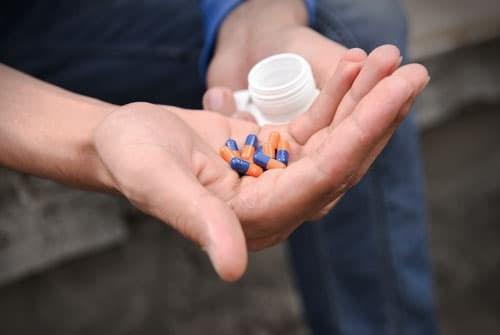Vyvanse Side Effects
Physiological disorders in human beings call for diagnosis and treatment. Medicines are an inherent part of this treatment, one of which is Lisdexamfetamine, popularly sold as Vyvanse. It is widely used in the United States and is required to treat attention deficit hyperactivity disorder (ADHD) and also forms a part of treatment for some binge eating disorders. This medicine is incorporated into the treatment of the patient along with other therapies, such as psychological therapy and social treatments. The drug is generally regarded as a stimulant believed to restore the normal function of neurotransmitters in the brain. However, it is a fact that drugs come with side effects and Vyvanse is no exception. There are Vyvanse side effects that can take a toll on the mental and physical health of the patient receiving them.
Guide to Using Vyvanse
There are specific points that you need to note before you take Vyvanse:
-
Allergies: To avoid the side effects of Vyvanse, you need to consult your physician regarding any allergies that you may have. Be it with your food, dyes, preservatives or medicines; you need to discuss any allergies that might surface before starting the treatment.
-
Pregnancy: You should avoid Vyvanse when you are breastfeeding your child. Taking Vyvanse during pregnancy should be closely monitored by doctors to ensure that it does not pose a threat to the growing fetus.
-
Age: There are no pediatric or geriatric-specific side effects found to date. Children below the age of six years, as well as individuals that are senior in age, are not administered Vyvanse.
-
Drug Interactions: Certain medicines might work perfectly well together, while others might be incompatible with each other. In order to avoid any severe Vyvanse side effects, it is advised that your doctor has a thorough knowledge of all the medicines that you are regularly taking. Drugs such as Moclobemide, Methylene Blue, etc. should not be taken along with Vyvanse.
-
Other Interactions: There are certain food habits or habits in general which are incompatible with this medicine. You should consult a doctor if you have a habit of smoking, drinking or eating a specific kind of food.
-
Other health problems: A thorough medical history check is required before this medicine is administered. Talk to your doctor if you have any history of alcohol abuse, allergy, coronary infections, etc. in order to avoid dire consequences.
You also need to take the proper dosage that your body can adhere to:
-
Children: Vyvanse can be taken with or without food as per the instruction of the physician. Children between 6 to 12 years are administered 30 mg per day. However, the dosage is adjusted by the pediatrician depending on the results.
-
Adults: 40mg is the desired dosage for an adult every morning. Vyvanse comes in capsules of various dosages, which can be fixed by your physician as per your requirements.
Getting the correct dose is essential for the following reasons :
-
An overdose of Vyvanse can be fatal. You need to seek medical attention as soon as possible. Symptoms of overdose include dark-colored urine, anxiety, breathlessness, panic, tremor, blurred vision and muscle weakness.
-
If you have missed a dosage, it is advised that you take it as soon as possible. However, avoid taking Vyvanse close to the evening. You won't need an extra dosage for the missed one.

Possible Side Effects
There are Vyvanse side effects that might affect you mentally and physically if you are taking this medicine regularly. You don't need to be alarmed as these side-effects are usually minimal or non-existent in users. However, it is essential that you are aware of all the possible side effects:
-
Anxiety and irritability: Getting anxious or grumpy is a regular symptom of taking Vyvanse medication. This can reveal itself as a part of active treatment or withdrawal symptoms. Lack of sleep, concentration loss, fatigue and getting irritated are common symptoms that you may experience!
-
Dizziness: There are chances that you'll feel dizzy as this medication affects the neurotransmitters in the brain.
-
Nausea and vomiting: More than 10% of patients taking this medicine are affected by nausea, vomiting, diarrhea, upper abdominal pain and dry mouth. It is the most common side effect which is associated with this medication.
-
Cardiovascular diseases: A heart attack is possibly the worst side effect that Vyvanse might pose. Tachycardia and an increase in blood pressure are seen among 10% of patients. In case you're facing unusual pain in your chest or a significant increase in pressure, you need to consult your doctor as soon as possible to prevent further mishaps. Hence, older people with potential heart diseases are not administered this medicine.
-
Dermatological and hair issues: Although this is not a common side effect, many patients have claimed to have acne and other skin problems. Hair loss is also another rare side effect associated with Vyvanse. Hence, you might experience this side effect depending on your skin and hair quality.
-
Mood swings: Besides anxiety, depression and irritation taking a toll on your mental health, there are chances that you will be a victim of mood swings. Vyvanse has a half-life of 47 minutes approximately, however, the effects might last as long as 9 to 14 hours. Sudden changes in mood, hallucinations, confusion and immediate states of euphoria are common side effects of Vyvanse.
-
Weight loss and weight gain: As a stimulant, it can radically decrease your weight by restricting your appetite. However, as you stop the dosages, you may gain weight radically. This leads many patients to delay discontinuing the use of this medicine. However, it is advisable that although losing weight can be difficult, you need to cut down on it for more significant health benefits!

Summary
Vyvanse is a stimulant curated to support you in recovering from your disorders. However, it comes with several side effects which must be known before you go ahead with its consumption. It is advisable that you have a serious consultation with your doctor in order to have a healthy period of medication with low to no chances of suffering. For better insights, take a look at the following video:
